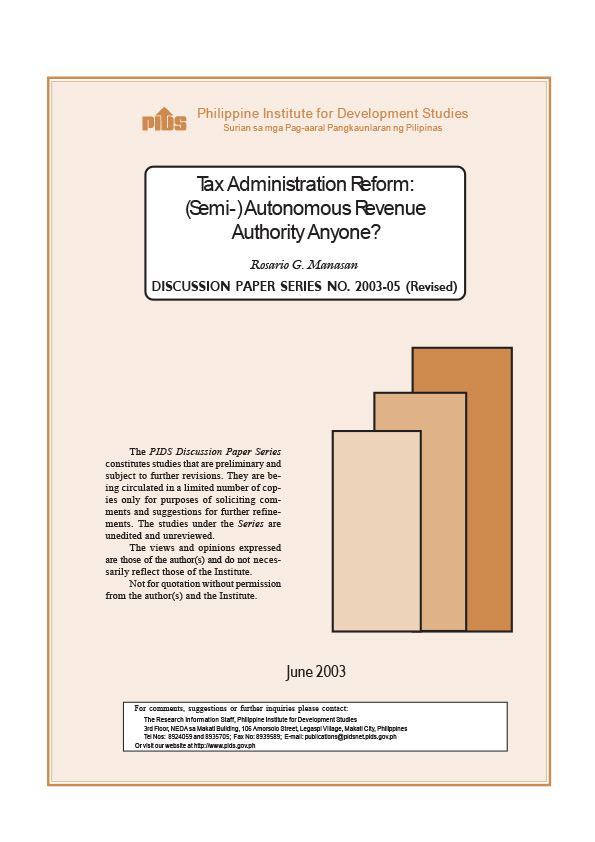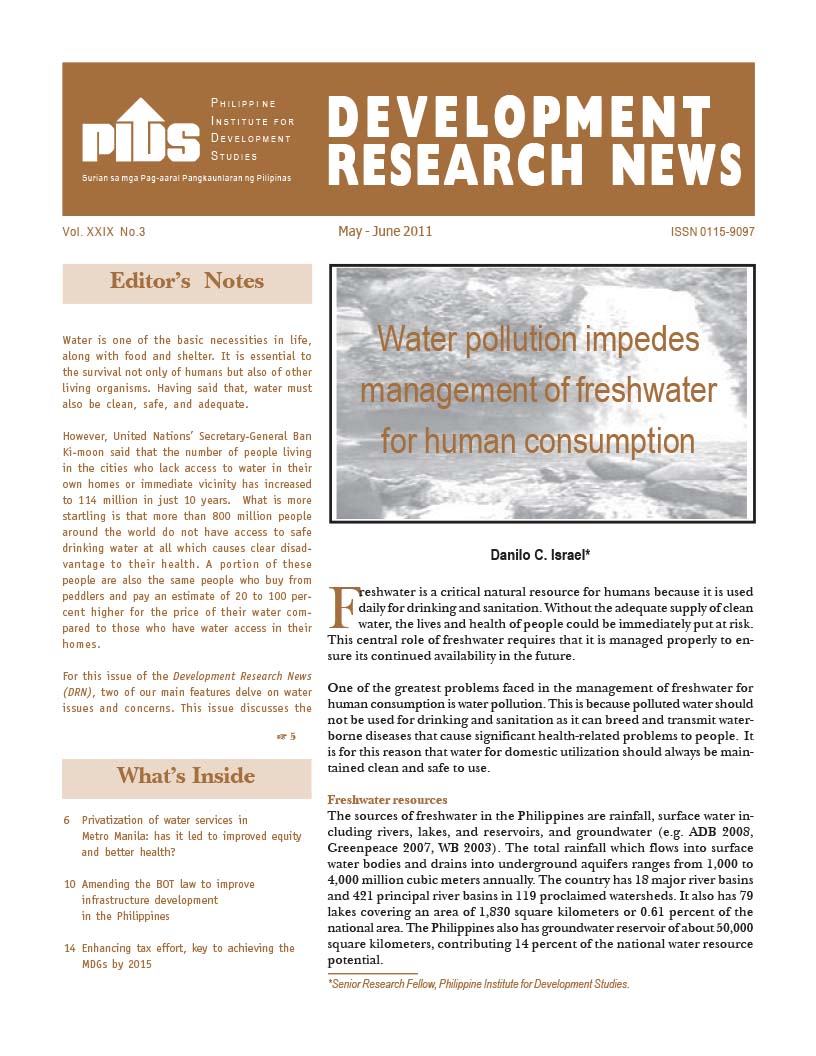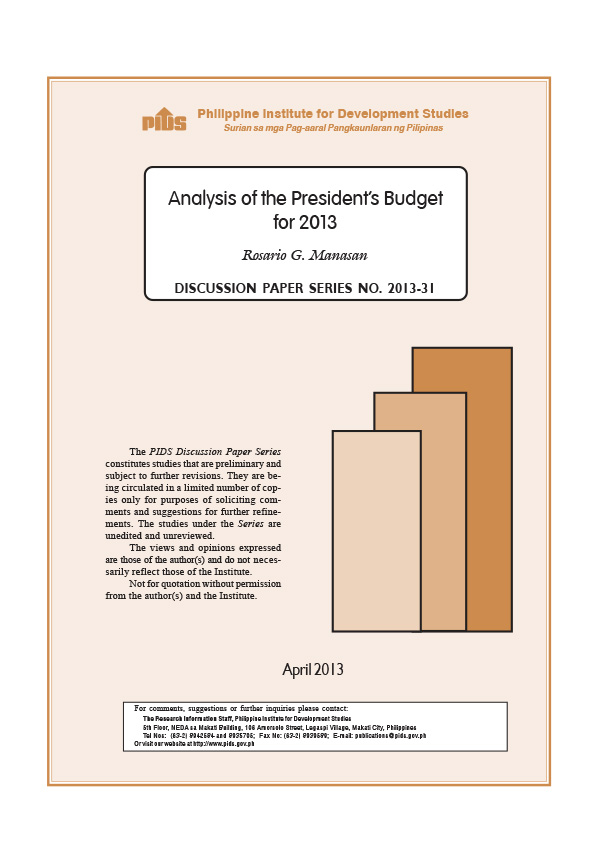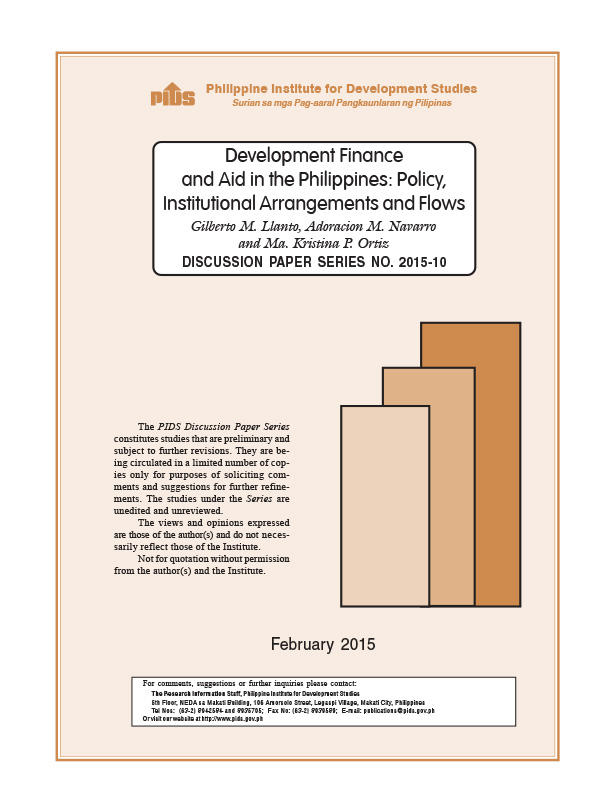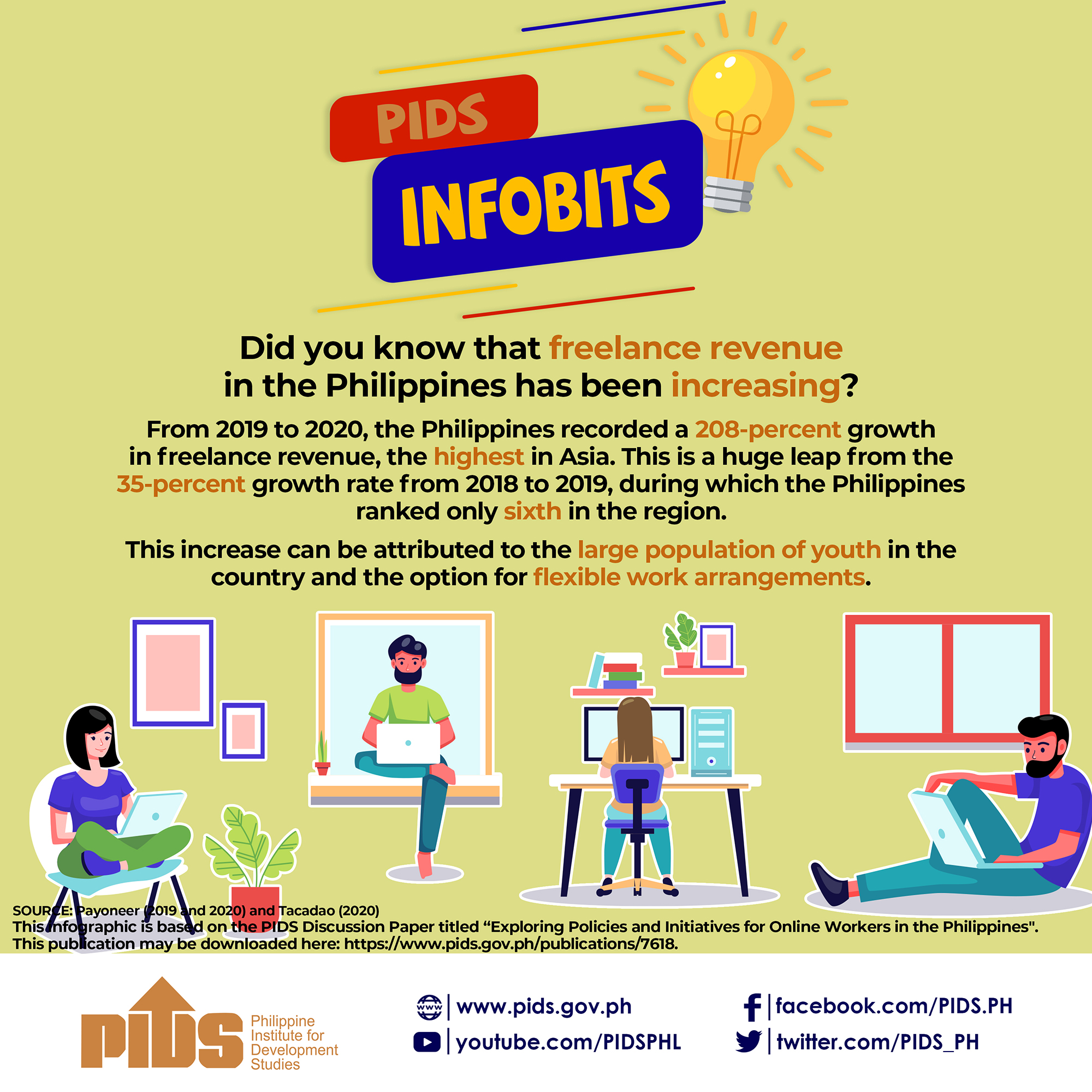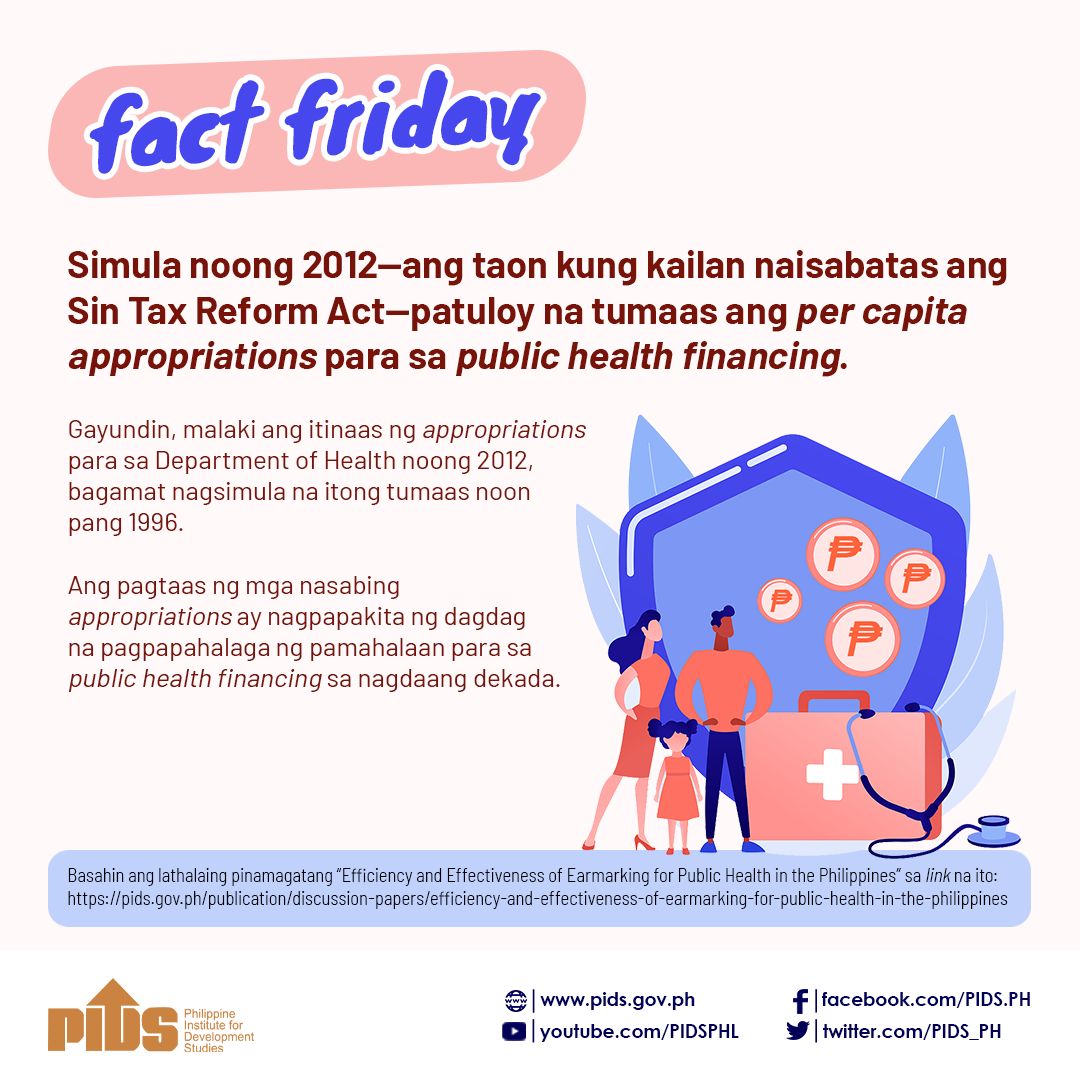The Philippines has not been immune to the worldwide trend towards the creation of semi-autonomous revenue authorities. To date, three bills are pending at the House of Representatives seeking to establish a semi-autonomous internal revenue administration to replace the Bureau of Internal Revenue. A review of the international experience reveals that the record of semi-autonomous revenue authorities in improving tax effort and in combating corruption is mixed. Moreover, even in many of the countries that have shown some degree of success with the model, there is some evidence that the gains in revenue performance tend to be eroded after some time. The more successful and sustainable revenue authorities appear to be those that have a higher degree of autonomy. Thus, should Philippine authorities decide to adopt the autonomous revenue authority model, it is imperative that it should be done right. Half measures will not be good enough. Doing it right implies that the new tax agency should be vested with strong autonomy-enhancing features and accountability mechanisms. The paper reviews the specific provisions of the alternative bills and suggests concrete areas for improvement.
Citations
This publication has been cited 1 time
- Gbato, Andre, Falapalaki Lemou, and Jean-François Brun. 2021. Effectiveness of SARA reform in sub-Saharan Africa [Efficacité de la réforme des SARA en Afrique subsaharienne]. Working Papers hal-03119001. HAL.

